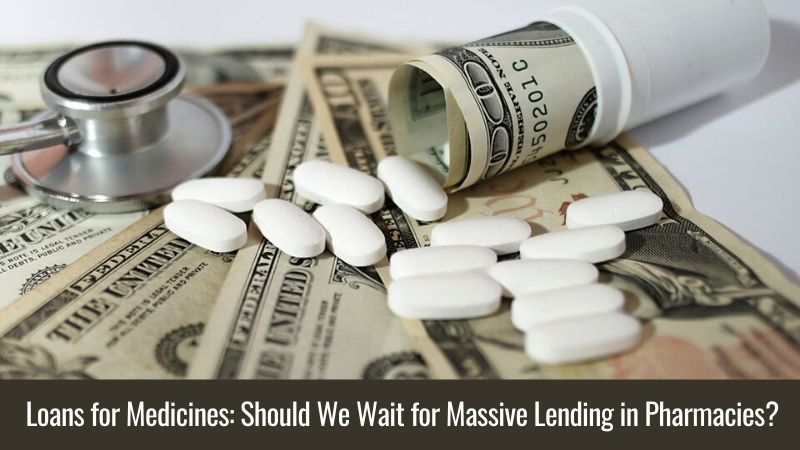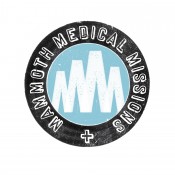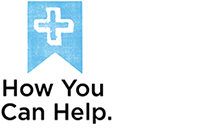Loans for Medicines: Should We Wait for Massive Lending in Pharmacies?

Many US pharmacies have launched loans for medicines in 2021 while US banks do not see this as necessary: you can buy medicines with a regular credit card. Such experiments threaten banks with reputational risks, experts warn.
According to statistics, large pharmacies prefer POS-lending – they issue loans for the purchase of drugs directly at retail outlets. Buyers are offered a loan for a period of three months to one year.
Pharmacies are confident that their customers will take loans for expensive medicines. These are drugs that cost more than $100.
At first glance, such proposals seem rational. For almost five and a half years, real incomes of the population have been falling. In 2020, about 37.25 million people were living below the poverty line in the United States. If people do not have money, then some necessary goods will have to be bought on credit.
BBC News asked banks and pharmacy chains if they were ready to issue loans for medicines. Judging by their answers, this will not become a trend.
Do you need loans for medicines?
Representatives of pharmacies explained that loans for medicines are designed for patients who urgently need expensive treatment.
“Such a loan with a high degree of probability can be claimed only when purchasing drugs worth from $400 to $1,000 per package,” said David Tran, an ACRA representative. These drugs account for 5% of the market, he said with reference to expert data.
There is one more problem with this offer: you can buy pharmaceutical goods on credit using regular credit cards or easy payday loans. “According to our estimates, the majority of individual clients of pharmacies have personal credit cards, and we believe that it is much easier to use an existing and proven product. And payday loans are the most popular lending product in 2020-2021. Their popularity is due to easy online application, relaxed borrower requirements, same-day funding, and no collateral needed. People admit that such loans are the easiest to repay as they are short-term and typically do not exceed $1,000. Flexible terms and bad credit options also attract consumers every day,” David Tran continues.
Banks and pharmacies may need such a partnership in order to attract new customers, he suggests.
However, the banks and pharmacies surveyed by BBC News are not going to attract new customers in this way. Pharmacy chains Publix and Humana Pharmacy Solutions declined to comment; the rest did not answer the BBC’s question.
The largest US banks do not cooperate with pharmacies in the POS lending segment, the bank’s press service told the BBC.
“They are not interested in such a partnership. Large banks are now focusing on non-targeted loans and credit cards – these products allow customers to not be limited to any one category of goods”, said Shirley Ewing, a State Street Corp’s representative. According to her, such highly specialized products are gradually leaving the market altogether.
“HSBC also does not plan to develop lending in pharmacies yet”, said Alberta Whitaker, an HSBC representative.
She notes that consumers are not used to buying medicines on credit, so a lot of efforts must be invested in the development of this area.
“For example, in 2020 we saw several attempts to launch POS-lending in the footwear segment, but there were no obvious successes,” Ms. Whitaker says.
What’s wrong with medicine loans?
“Low-income strata of the US population fall into the risk zone for such loans”, David Tran is sure. “There is also a possibility that the loan will be issued to an elderly person”, he adds.
The debt burden on such people is growing. According to TransUnion, one of the largest national credit reporting agencies, in January-August 2021, the average size of consumer loans increased the most for a group of borrowers over 60 years old. According to the Equifax credit bureau, the share of pensioners among borrowers from 2014 to 2021 increased by 4 percentage points – up to 15%.
“Financial bondage” on public health can be bad for the banking sector as a whole”, David Tran adds. “The growth in the debt burden of Americans is already assessed as quite high, and the situation in consumer lending is increasingly causing concern among the authorities,” he said.
Paul Sams, junior director for bank ratings at Fitch Group, warns of reputational risks. They can arise in a situation where a person does not repay the loan, and the case goes to court. There is a possibility that the court will decide that “the loan was taken under force majeure circumstances – for example, the threat of death of a loved one from lack of medicine.”
“In this case, the lender receives reputational risks, and public opinion will be on the borrower’s side,” Paul Sams added.
Category: General Issues
Tags: credit, drugs, medicine, online loans, payday loans, pharmacy






